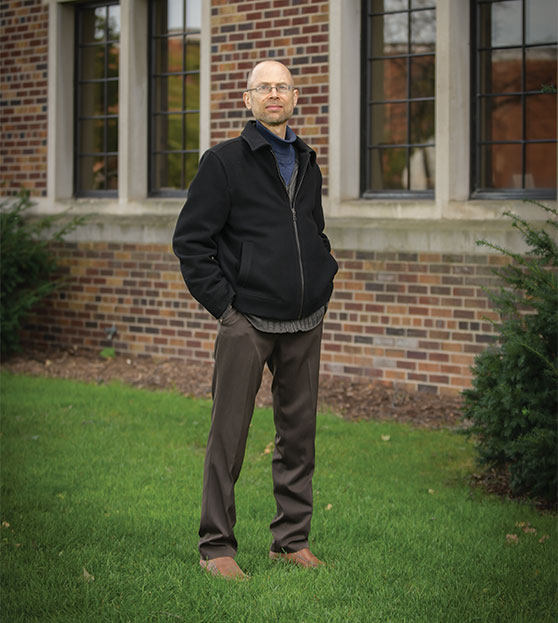A Philosopher Considers Modern Media, and Is Not Amused
Joseph LaPorte, Ph.D. | Professor of Philosophy
Your “inscape” is in need of a total overhaul. You could start by throwing out your TV.
That’s the rather iconoclastic view of Dr. Joseph LaPorte, whose particular focus is philosophy of biology and language. He contends that our “inscapes” — a term he borrows loosely from Victorian poet Gerard Manley Hopkins — are on the brink of total collapse due to modern lifestyle choices.
“Inscape corresponds to the interior life, the mind, as opposed to ‘landscape,’ which we think of as outside ourselves entirely. We are shaped by what goes on outside us. For a typical person that would include a lot of advertising — especially electronic — and would also include socialization and the time we spend with the things that we surround ourselves by.”
He notes that for the first time in history, the world is primarily urban. “If you think of our species’ history as modern humans, going back 100,000 years, 99 percent of that was spent as hunter-gatherers. We were in small groups of maybe 100 — with a lot of face-to-face contact with people and very close interaction with plants, animals and dirt,” LaPorte says. “We’ve come out of that environment quite quickly. Less than 200 years ago you had the Industrial Revolution, which resulted in massive change.”
Today, “people spend decades of their lives in front of electronic screens,” LaPorte laments. “How much of that is good? The answer has to do, in part, with who’s in charge. Are you using technology to grow your own projects — or are designers of information packages getting better use of the technology by reshaping your mind and values? Take a fairly straightforward example: Children are exposed to tens of thousands of commercials a year, all telling them how miserable they are without such-and-such product. That’s not a recipe for happiness.”
LaPorte advocates a return to natural living, but as a philosopher of language he suggests that “natural” has lost its meaning. “The FDA even wants to certify the word,” notes LaPorte, whose 2018 essay on the ambiguity of the phrase “natural foods” appears in the online magazine AEON.
He acknowledges that complete elimination of glowing screens is unlikely, particularly on a college campus filled with cell phones, iPads and laptops. “Tell me about it,” he muses. “I sit in front of a screen, too, or else I wouldn’t be published. But I take breaks. I make sure I spend time with people, get some sunlight, and try to devote as much time as I can to restoring the environment.”
Read Dr. LaPorte’s AEON essay about “natural foods”

